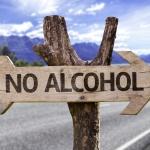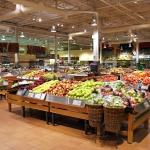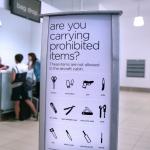Channels
Resources
Events Venues
SEARCH INFO
There are 215 results for "introduction to anvisa" on The Brazil Business.
BEST MATCHES

Advertising for alcoholic beverages is subject to many restrictions in Brazil. This article will explain the main ones and what changes this industry has recently faced.

The growing concern about the impact of food on people’s health has led to an interesting scenario for products like functional food. In this article, we will take a look at how to register functional food in Brazil.

The bottled water industry in Brazil is going through some changes following the consumer change in behavior. In this article we will take a closer look at the Brazilian bottled water market.

In Brazil, there are three different types of taxes levied on income: the IRPF, the IRPJ and the IRRF. In this article, we will learn more about IRPF.

As the bureaucratic process of starting any business in Brazil is quite complicated, it is to be expected that starting a supermarket might not be the easiest task either. In this article we will explain how to start a supermarket in Brazil.

Perfumes, cosmetics, toiletries and similar products need to be registered with the National Agency of Health Surveillance, ANVISA, which regulates the production, import and trade of perfumes, cosmetics, toiletries, etc. It has established the criteria for the composition of the products, permitted and restricted ingredients, instructions for labeling and other related measures.

To incentivize the Brazilian healthcare industry the Brazilian government has created PROCIS, which is the Program for the Development of Industrial Health Complex, that prioritizes the national production of medicine and technology in the healthcare area. In this article you are going to learn about these investments.

Hair commerce is increasing in Brazil and becoming an important import good due to the growth of the beauty industry, where hair is used in the production of wigs and extensions. In this article, you will learn how to import hair to Brazil.

Whether it is due to strategic economic measures, to cultural beliefs or to health concerns countries may totally forbid the import of specific goods. In this article, we will look at which goods are prohibited to be imported to Brazil.

When providing services in different cities, it is necessary for legal entities to inform the city Secretariat of Finances in order to avoid tax accounting issues. In this article we will learn more about this registry, called CPOM.

In this article you will learn about the process of importing donated goods to Brazil. This is a category of import that has specific procedures and certain restrictions.

IBAMA is an institute that was created to ensure the preservation and maintenance of the environment. It acts in the protection of Brazilian natural resources. In this article we will understand what IBAMA is and its functions.

Currently, the sector of bakeries is the country's second largest food distribution channel and one of the six major industries. In Brazil there are around 64 000 small and medium-sized bakeries. In this article you will learn how to start this business in Brazil.

Brazilians are the largest consumers of cleaning products in Latin America spending an average of BRL 271,68 per year. According to Sebrae, an institution supporting the development of small and micro companies, Brazil has the fourth largest market in the word for cleaning products after the United States, China and Japan.

Foreigners coming to Brazil sometimes bring all their family, including their pets. There are a few procedures that need to be followed in order to legally import your pet to Brazil and in this article we will give you an introduction on the topic.